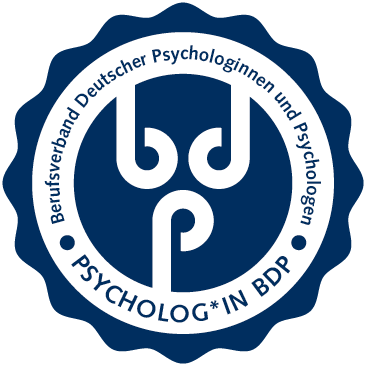


Patric Pförtner
M.Sc. Psychologe, PhD Candidate
Do you feel constantly on edge and exhausted, like your mind can't slow down even when you try to relax? Are you constantly worried about work deadlines, finances, or even minor inconveniences, to the point where it interferes with your daily life? Does this constant worry make you feel physically drained, tense, or irritable? And because of this, do you find it difficult to concentrate on tasks or complete them on time?
In psychology, this could be a sign of burnout. Burnout is a state of emotional, physical, and mental exhaustion caused by prolonged or excessive stress. But, it is not classified as a medical condition.
You may experience some of those symptoms.
Please be aware that a talk with a therapist or other mental health professional can help you understand these symptoms and develop strategies to manage them.
According to the World Health Organization, Burn-out refers specifically to phenomena in the occupational context and should not be applied to describe experiences in other areas of life.
This isn't a diagnostic tool, but if you experience several of these symptoms frequently and they disrupt your work life, it's important to seek professional help.
If you believe you may be experiencing burnout, you should consult a therapist, counselor, or other mental health professional.
Do you identify with many of the following statements?
If you find yourself resonating with many of these statements, this self-assessment for burnout can be a helpful starting point.
This online assessment is not a definitive diagnostic tool for burnout. It cannot diagnose burnout or guarantee the presence or absence of any underlying issues.
However, this test can be a valuable self-reflection tool. It can help you identify patterns in your experiences and track any changes over time. You can also share your results with a therapist or counselor to gain further insight and discuss any concerns you may have.
Remember, a qualified mental health professional is the only one who can provide a diagnosis and recommend the most appropriate course of action for you.
All questions refer to the last 14 days. The answer options are graded on a scoring system, where the first answer option is one point and the last is five points. Enter your ratings next to each question and click the "Evaluate" button at the end.
1. Do you feel that you have lost control over your work-life?
2. Would a colleague say that you seem constantly under pressure?
3. Do you feel sadder or more down than usual lately, when you go to work?
4. Do you often feel guilty when you take time for yourself in your lunch break?
5. Do you feel like you're constantly trying to please others ot your workplace?
6. Would your colleague say that you seem constantly in a hurry or working against the clock?
7. Do you often feel lonely or isolated at work?
8. Do you often feel overlooked or ignored in the workplace?
9. Do you often feel physically uncomfortable or sick, when you sit at your working table?
10. Do you find it difficult to concentrate on a task?
11. Do you feel overwhelmed, even though the demands of your job are not higher than before?
12. Do you often feel insecure or doubt yourself?
13. Are you often irritable or angry, even over small things at work?
14. Do you find it difficult to do something nice for yourself, which is not linked to working?
15. Are you often tired after work, even when you have had enough sleep?
16. Do you often feel hopeless or depressed at work?
17. Do you often feel restless or have difficulty sitting still?
18. Do you often feel stressed or overwhelmed when thinking about work?
19. Do you often feel anxious for no apparent reason, when you are on your way to work?
20. Is it difficult for you to say no to your supervisor, even when you really don't have the time or energy?
21. Do you find it difficult to make decisions in a work-related context?
22. Do you often feel misunderstood or unappreciated in the workplace?
23. Do you feel that your work or daily life lacks value, meaning, or significance?
24. Do you often feel uncomfortable or anxious in team meetings?
25. Are you often dissatisfied with your work?
26. Do you feel like you constantly have to fight to be seen or heard at work?
27. Do you often feel overwhelmed by your responsibilities that you have to deal with during work?
28. Do you find it difficult to motivate yourself, even for things you normally enjoy?
29. Do you often feel dissatisfied or unhappy, without knowing exactly why?
30. Do you often feel guilty at work?
This online screening is not a diagnostic tool. Only a trained medical professional, such as a doctor or a psychiatrist or psychotherapist, can help you with the next steps.
Feeling burned out? This self-assessment can help you talk to a therapist! The questions can act like conversation starters to tell your therapist how you're feeling and what you'd like to work on, like getting your energy back or feeling good about your work again.
Here's a simple tip: After taking the test, pay attention to the statements that felt most true for you. Pick the top 3 statements and discuss them with your therapist. This can be a great starting point to get help!
For example, let's say your top 3 questions were:
Bring these statements to your therapy session! Discussing the ones you identified with most can jumpstart a productive conversation with your therapist about managing burnout.
This helps them understand your experience better and create a personalized plan to address your specific needs, like reducing stress or finding renewed energy.

Copyright © Patric Pförtner 2025
Website made by WebWizr.eu

Important Links
Important Information
All rights reserved. Our website services, content, and products are for informational purposes only. Betterpsychologist.com does not provide medical advice, diagnosis, or treatment.